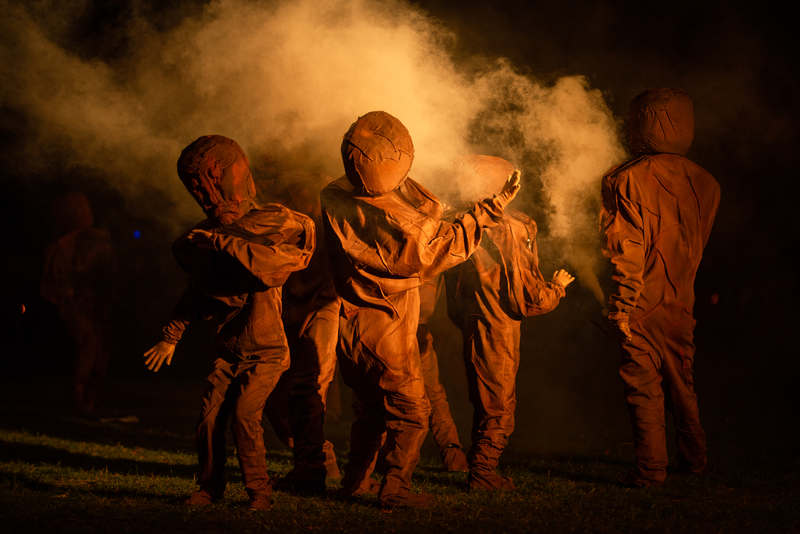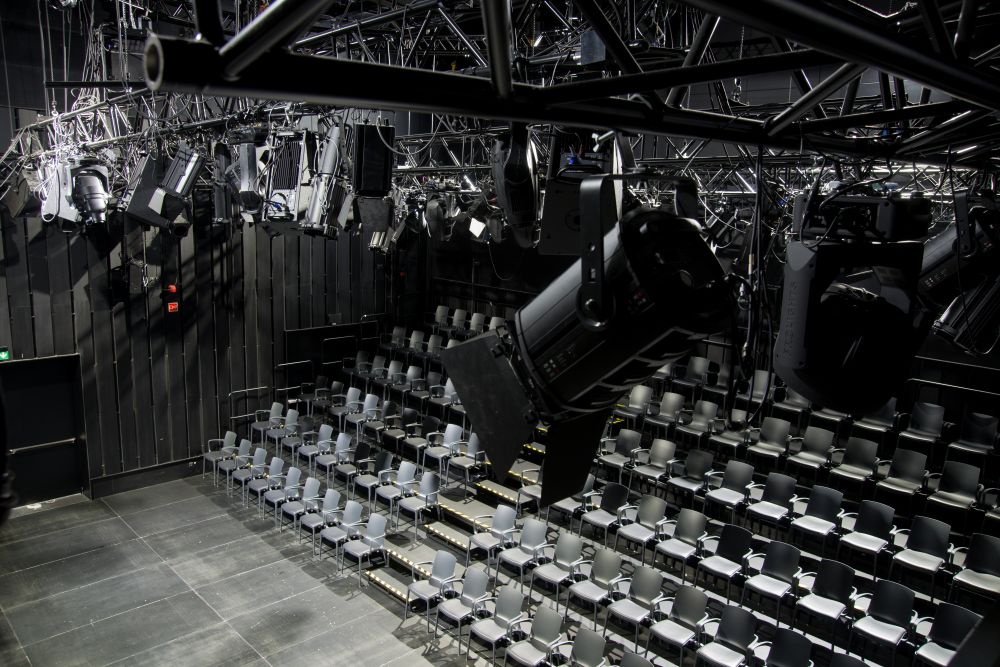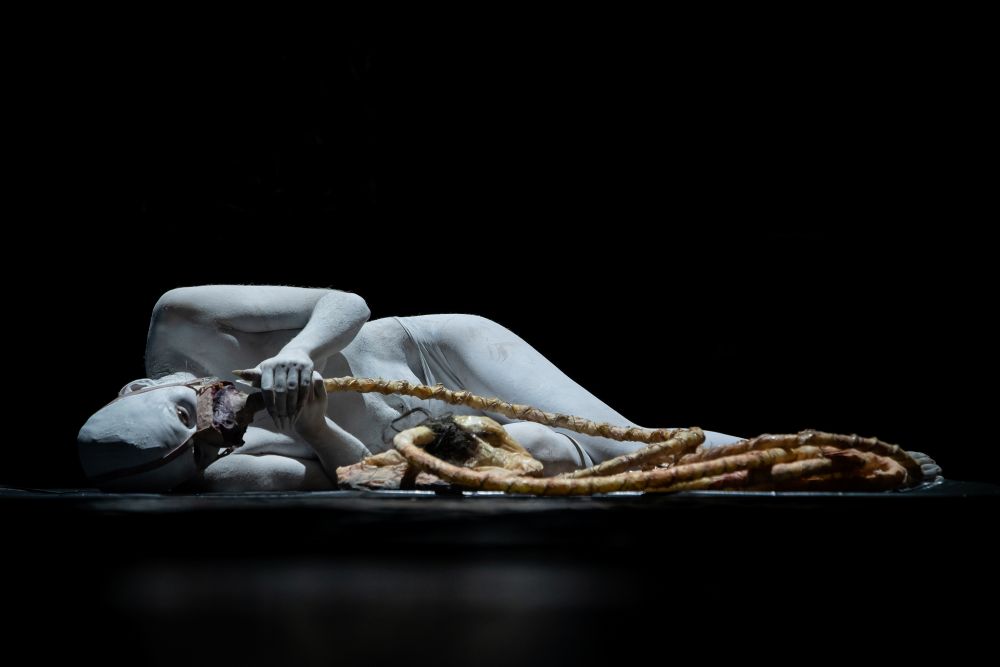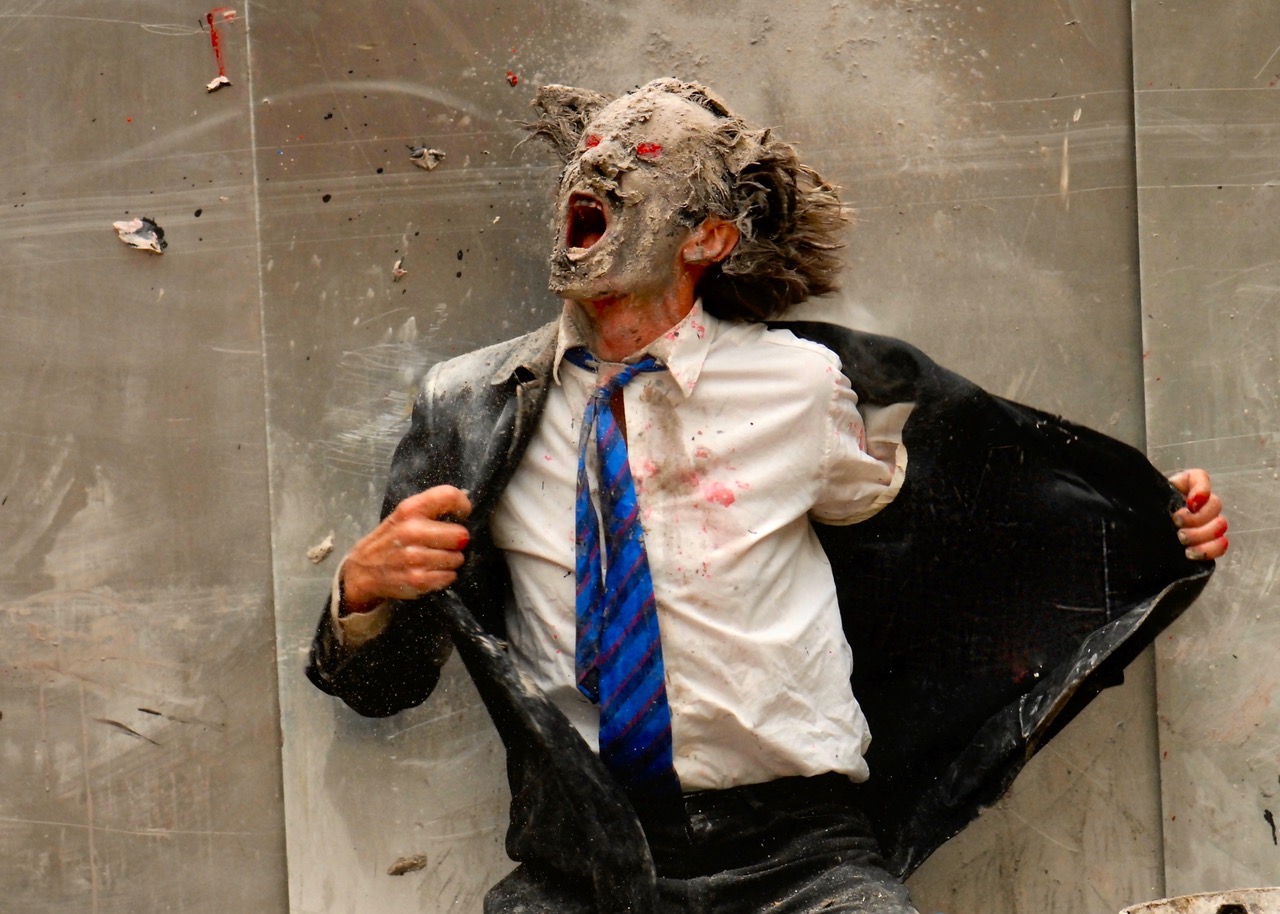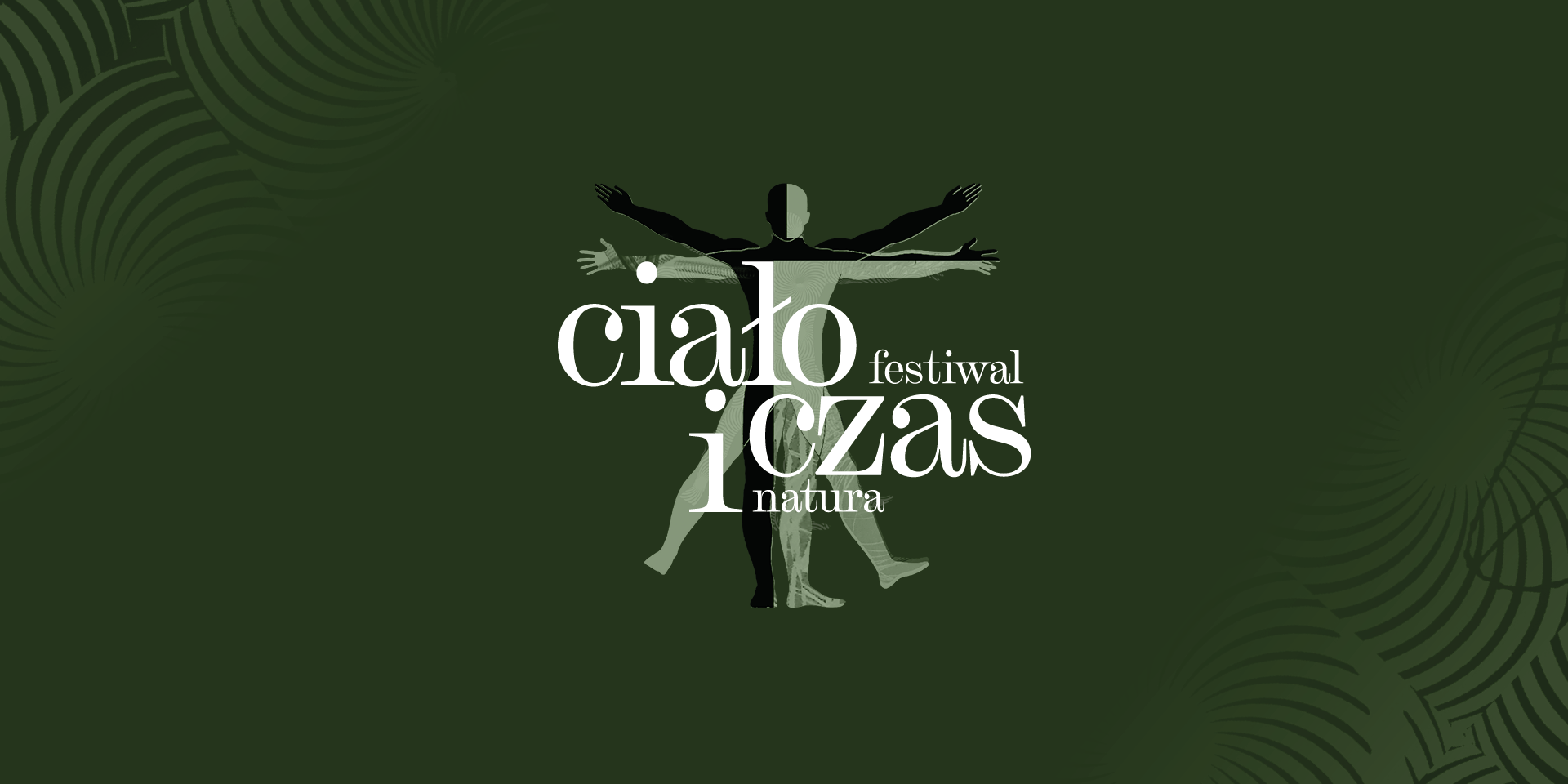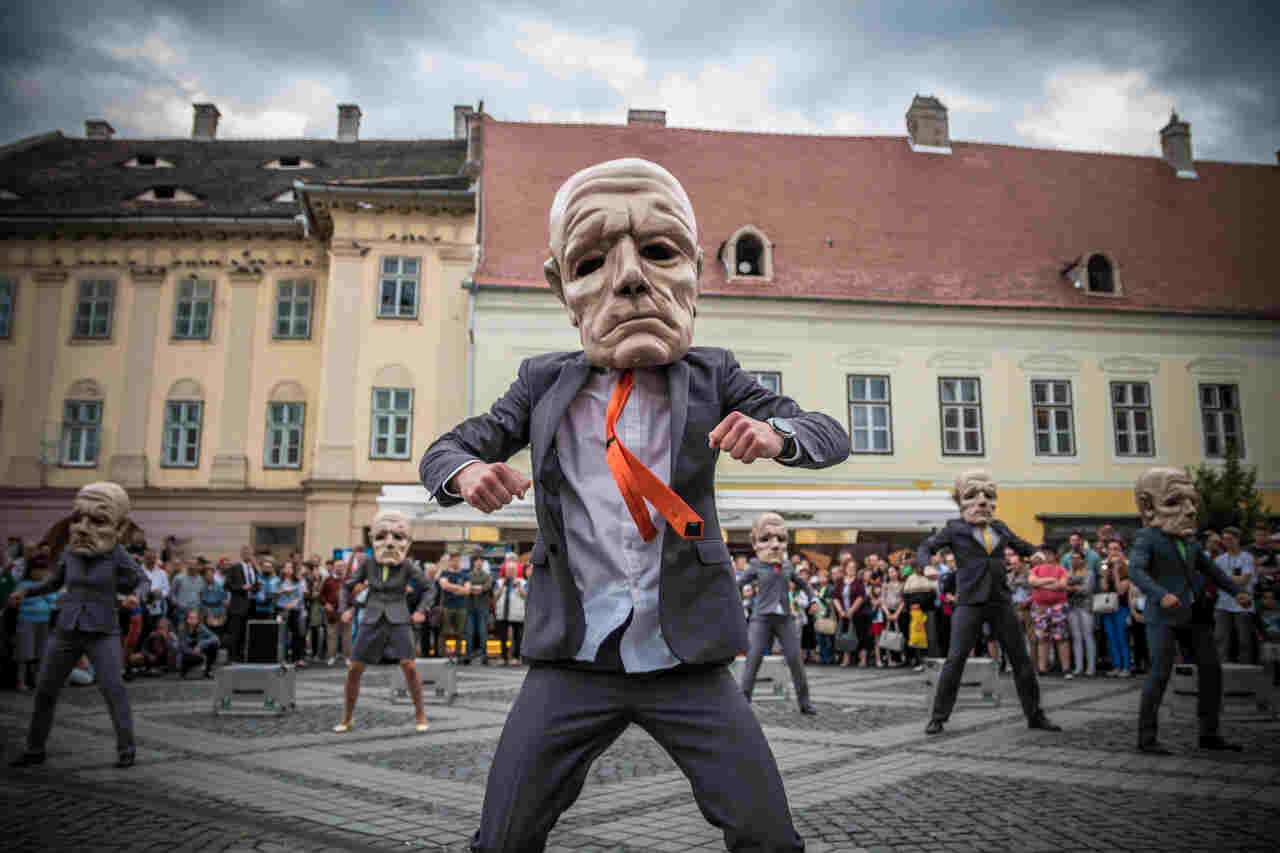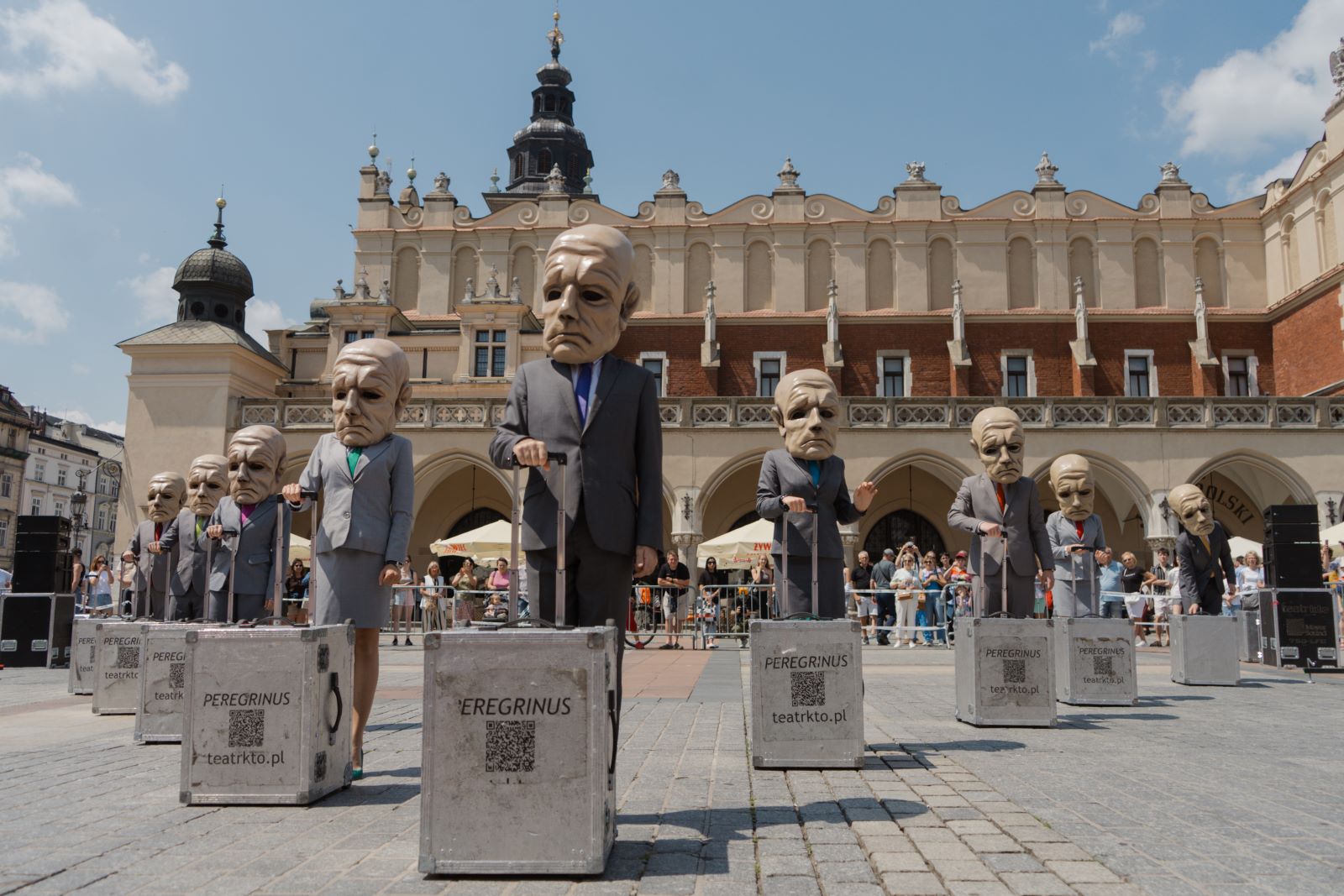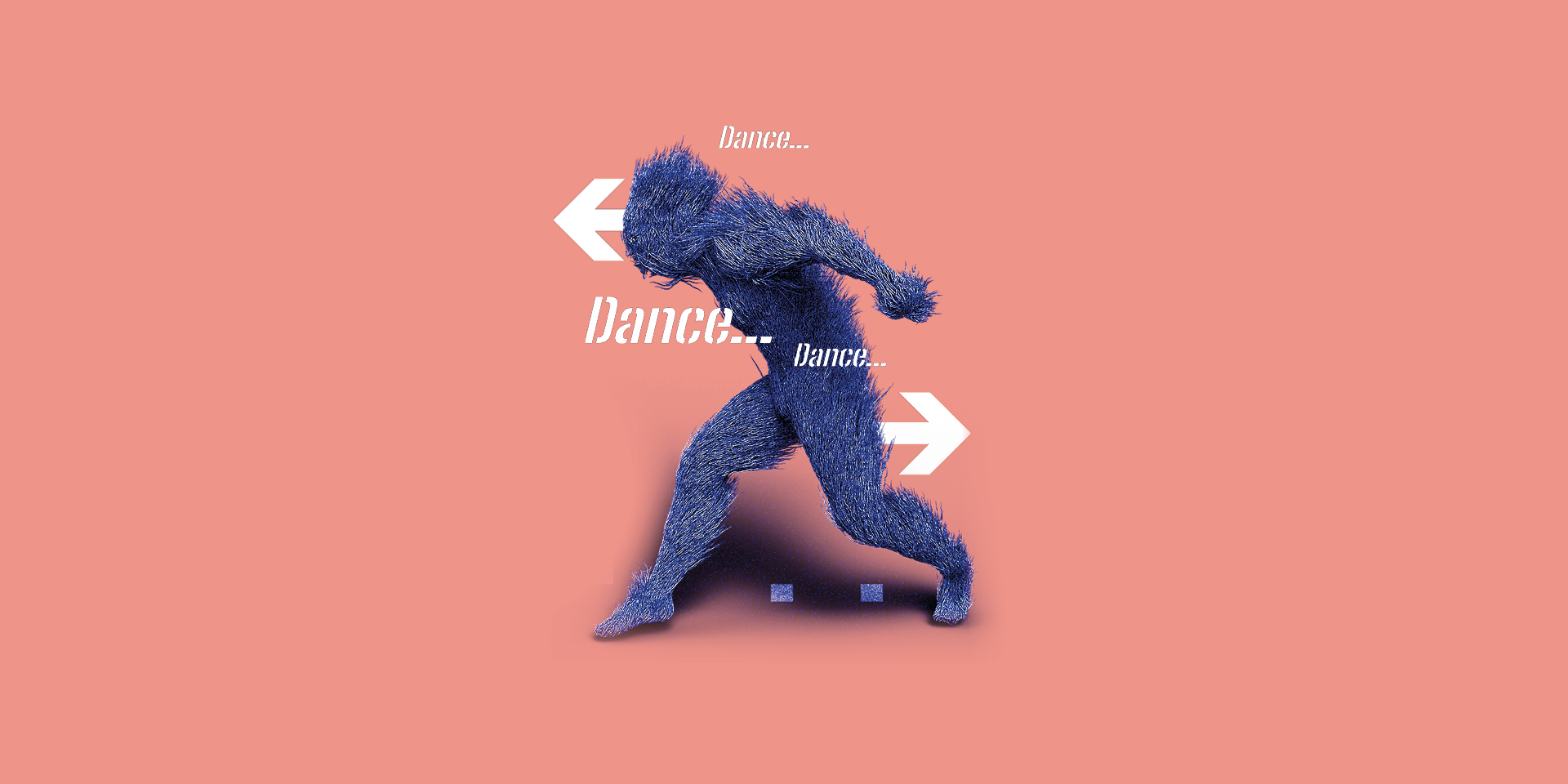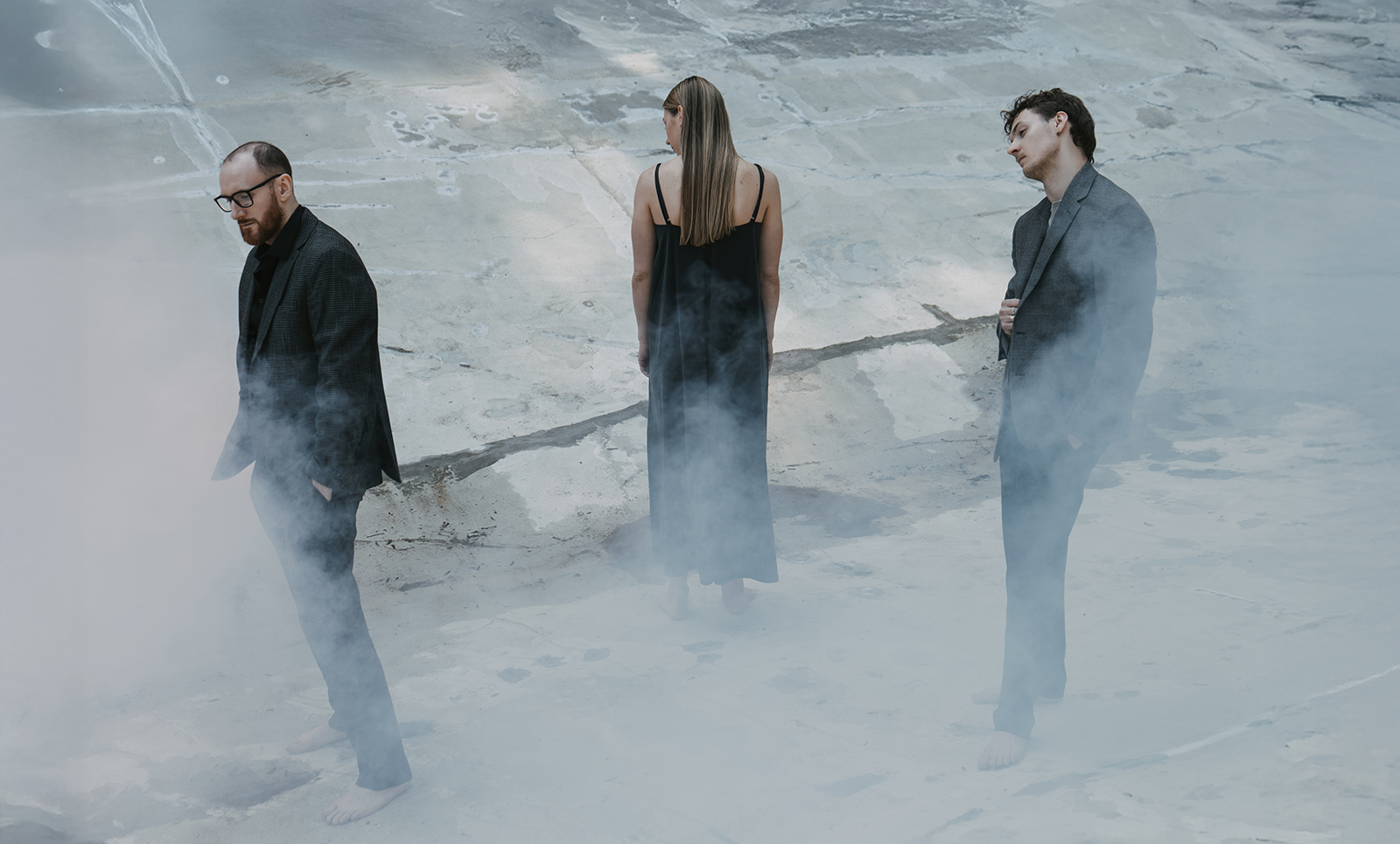When another Don Quixote arrives in Krakow at the beginning of July to stand by the jugglers frolicking in the Main Market Square, even the old Cervantes’ ape of Master Peter, large, without a tail and with hairy buttocks, may not save Jerzy Zoń’s three-day illusion. Although he is not a hidalgo but, let’s say, a plumber by the name of Stefan, and not from La Mancha but from the Nowa Huta district of Krakow, he is still, just like the primary Don Quixote, touched by an uncontrolled faith in fairy tales. Such a gentleman may arrive on the 8th, 9th or 10th of July in the Main Market Square, coming from the side of Floriańska Street, to watch the performances of the freaks brought by Jerzy Zoń to ULICA – the 35th International Festival of Street Theatres. And should it happen that Stefan Quixote runs into „Don Quixote” by the HoM Theatre, a bloodless massacre may take place. Right. And if the HoM Theatre’s show includes a scene presenting a performance of a travelling theatre of paper puppets animated by Master Peter, the situation in the Main Market Square will become dangerous. Just as it has been in Cervantes’ menacing words for more than four centuries.
It could be quite a picturesque sight! Right there, in the middle of a three-day great illusion, consisting of 24 little illusions presented by theatre groups, mainly from Poland but also from Spain, Switzerland and Italy, and even from Togo, Stefan Quixote, who sincerely trusts in fairy tales, is looking at the show of a Polish travelling theatre and he spots Don Quixote, someone like him, only four hundred years older. On a contemporary stage, he sees himself from the past, looking at the performance of the travelling puppet theatre of Master Peter. In a word, what we have here is theatre within the theatre, a magic trick just as old as theatre itself. But in this case there is also an additional, third floor, or a third circle of illusion: theatre within the theatre within the theatre. Because, during these three days, the Main Market Square is like a gigantic stage surrounded by mansions, isn’t it? In one of them, the HoM Theatre plays „Don Quixote”, but if the viewers feel that behind their back, in another mansion, there is another fiction going on, and in the other mansions, on their left and right, there are still more fictions in Progress, what should they think about their own reality? As if there was not enough of this disturbing weirdness, Stefan Quixote still firmly believes in the reality of fairy tales. Is he at all able to get out of this maze of masks?
In Cervantes’ novel, the heroes suddenly find in the library a volume of … „Don Quixote” – a volume of fiction in the volume of fiction. Watching a puppet show by Master Peter, Don Quixote is in fact watching one of his erroneous adventures invented by Cervantes. One of the first novels in the world is therefore also one of the first displays of that disturbing game of fiction and reality. Years later Borges will discover the essence of this fundamental concern. He will say, if the characters of a fictional work can be readers or spectators, we, its readers or spectators, can be fictitious as well. Stefan Quixote is just that. Okay. But then, what about those seemingly rational who will watch Stefan’s slowly growing rage, looking at the slowly growing rage of the Errant Knight on the HoM Theatre’s stage, watching the ruthless Moors pursue a poor Christian woman in the scene presented in the Master Peter’s puppet theatre? So what if she and they are made of papier-mâché? A Moor is a Moor, a Christian is a Christian, and honor is honor. A truly noble knight must defend a fellow believer!
And, in Cervantes’ novel, Don Quixote stands in defense. Believing in the truth of a puppet fairy tale, he draws his sword and strikes, cuts and stabs, smashing the poor nativity scene created by Master Peter. He breaks the wooden frame of the nativity scene window, punctures the flimsy curtain and cuts the fragile bodies of the puppets. Their hands and legs are apart, their heads are somewhere far away, and the bellies turn into piles of powder. And suddenly, as if at a click, we are in a different reality and a different time! And the roadside Spanish inn from the early 17th century turns into the Main Market Square of Krakow in 2022. And here we have the puppets’ hands, legs and heads, turning into piles of powder, just like their bellies a second before. They turn to dust because Stefan Quixote left the space for the audience and burst onto the stage of the HoM Theatre to finish Don Quixote’s work with his reliable wrench, as befits the Errant Plumber known in Nowa Huta.
That’s right. Distant realities have magically intertwined, the eras separated by four centuries have interfused into one story. The one who firmly believes in the truth of fairy tales got extremely furious in both his incarnations, but at one point in time, although it is not quite clear whether this point still belongs to the beginning of the 17th century or to one of the three days of July 2022. Perhaps it is a travelling point of the inconceivable time of theatre, continually moving in all directions of real time, including the time of the three days of the ULICA festival? But that’s not all. On the 8th, 9th and 10th of July, at several locations in Krakow, and also in the towns of Niepołomice, Tarnów and Limanowa, many other distant realities will interfuse, many other very different times will intertwine for a while. The vapours of the dark time of „Poor People” by Dostoyevsky in a staging of the Nikola Theatre – with the fumes of eternal time of Saint-Exupéry’s „Little Prince” in the „Big Prince” production of the Krakow Dance Theatre. The shadow of loneliness by Kaspar Hauser in a staging of Teatr Biuro Podróży – with the shadow of the pulsating space of Swift’s words in Gulliver’s „Cosmic Journey” by Teatr Klinika Lalek. The always present time of the Knight trusting the truth of fairy tales in „Don Quixote” by the HoM Theatre – with the persistently recurring time of final disappointment in Różewicz’s poem „Et in Arcadia ego”, transformed into silence at the KTO Theatre by Jerzy Zoń. And also other stories intermingling with stories from still different spaces, clocks and colours.
Interference of many illusions. These are the best words for the ULICA festival, and also the most important ones. In ”Meditations on Don Quixote”, while writing about the eternity of Master Peter’s nativity scene, Ortega y Gasset stated that vapors move from one space to another. And later he added that, as one could say, this interfusion is very important indeed. Yes.
Interfusions
Paweł Głowacki, theatre critic

